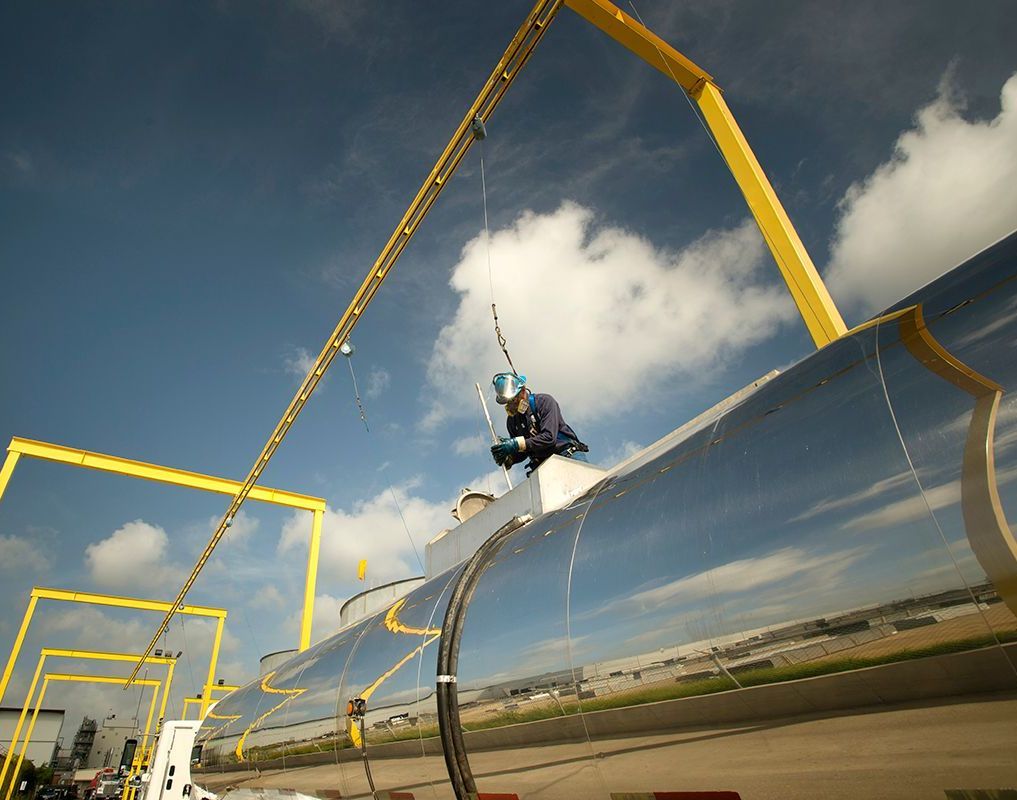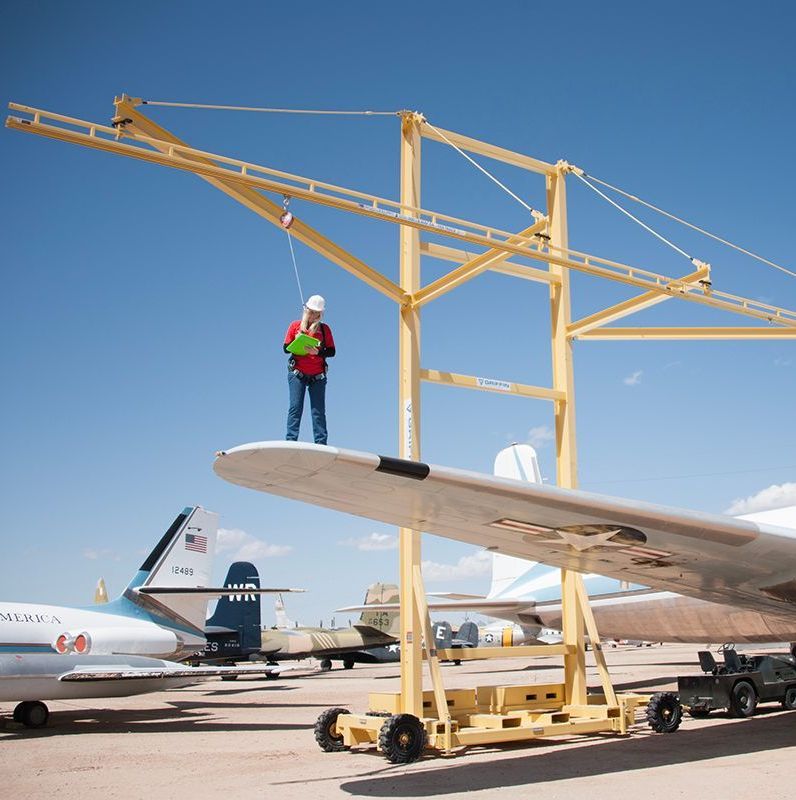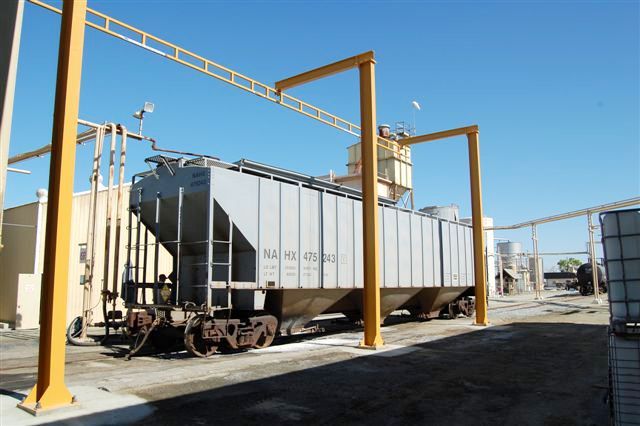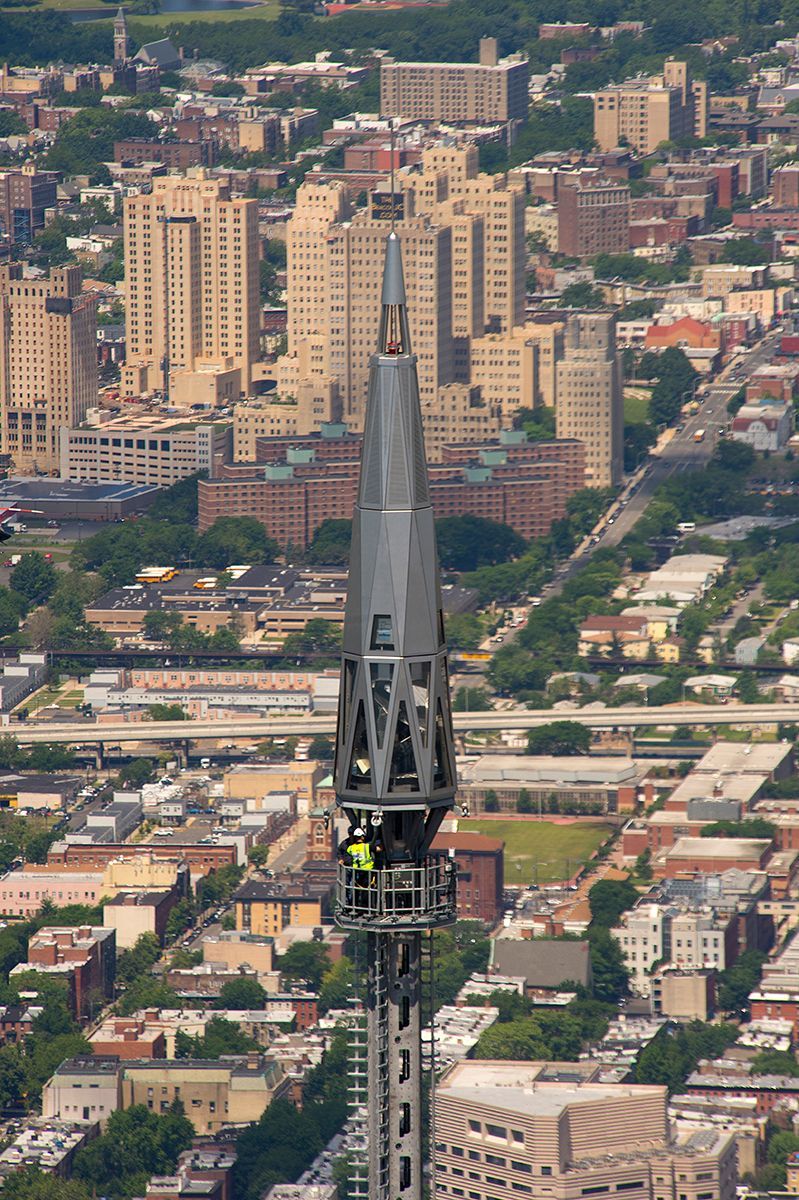Get in touch
7463 Elizabethtown Rd, Elizabethtown, PA 17022, United States of America
Fall Protection Industries
We safeguard diverse industries and applications with state-of-the-art fall arrest and restraint technology.
Since 1998, we have offered the latest fall protection equipment to a wide range of sectors. How can we help keep you safe?

fall protection for every industry
We service a range of industries with fall protection equipment and understand that each workplace presents unique hazards. We'll help you navigate the complexities of fall arrest and restraint systems for your particular industry, so your employees stay safe and you stay compliant.
industries we serve
Our professionals can design and build the correct solutions for your industry, ensuring your team’s safety is top of mind and that you’re in compliance with
OSHA standards.
Aerospace
TALK TO A SPECIALISTAerospace employees frequently perform tasks at heights, such as assembling aircraft on elevated platforms, conducting maintenance on tall structures, and installing components on large aerospace vehicles. The use of heavy machinery and precision tools further elevates the risk of accidents, making fall protection measures imperative.
Aircraft
TALK TO A SPECIALISTThe aircraft industry is dedicated to the design, production, operation, and maintenance of various types of aircraft. Ladders and harnesses are required in aviation and hangars. During routine maintenance and inspections, technicians frequently access different parts of the aircraft that are elevated, and reliable ladders provide the necessary height and stability to reach these areas safely.
Agriculture & Mining
TALK TO A SPECIALISTWorkers in agriculture and mining often operate heavy machinery, work at great heights, and are exposed to dangerous chemicals and equipment on a daily basis. Falls from elevated structures like grain bins, silos, or mining equipment can occur, and in order to mitigate these risks, employers must provide workers with appropriate fall protection gear.
Billboards
TALK TO A SPECIALISTEmployees tasked with installing, maintaining, or removing billboards are typically required to operate at dramatic heights, often on narrow platforms or ladders. Exposure to extreme weather conditions, such as high winds and rain, can further elevate the risk of falls, making the implementation of strong safety measures imperative.
Bridges
TALK TO A SPECIALISTThose who work on bridges perform their duties at great heights, often above water or busy roadways, where a fall can result in severe injury or death. The need to navigate narrow beams, scaffolding, and temporary platforms increases the risk of falls. Personal fall arrest systems, guardrails, and safety nets should be used to secure work areas.
Building Maintenance / Window Washing
TALK TO A SPECIALISTPersonnel who work on building maintenance and window washing routinely perform tasks on scaffolding, ladders, and suspended platforms, making them particularly vulnerable to falls. Activities such as cleaning windows on high-rise buildings, repairing exterior structures, and conducting maintenance on rooftops require stringent safety measures to prevent potentially fatal accidents.
Bus
TALK TO A SPECIALISTIn the bus industry, technicians often need to access elevated areas, such as the roof, engine compartments, and interior ceilings, which can expose them to serious fall hazards. Given the size and design of modern buses, falling from these heights can result in severe injuries or even fatalities, so measures like ladders, harnesses, and guardrails are key.
Chemical
TALK TO A SPECIALISTFall protection is needed in the chemical industry because of the challenges associated with handling hazardous substances and working in complex industrial environments. Employees in this sector often work on elevated platforms, catwalks, and tanks, where the risk of falls is compounded by the presence of toxic chemicals and reactive substances.
Construction
TALK TO A SPECIALISTConstruction sites are bustling environments with numerous potential fall hazards, such as unguarded edges, floor openings, scaffolds, ladders, and roofs. Workers often perform tasks at various elevations, and the combination of heavy machinery, unfinished structures, and constantly changing site conditions worsens the risk of falling even more.
Cranes
TALK TO A SPECIALISTCrane operators are responsible for lifting and moving heavy loads, often in challenging weather conditions and tight spaces. A fall from a crane can result in severe injuries or fatalities not only for the operator but also for others on the ground.
Data Centers
TALK TO A SPECIALISTData center employees often perform tasks on raised floors or elevated platforms to access server racks, cabling, and air conditioning units. The presence of electrical wiring, intricate equipment setups, and sometimes confined spaces increases the potential for fall-related accidents. Implementing comprehensive fall protection systems such as personal fall arrest systems is essential in mitigating these hazards.
Dams
TALK TO A SPECIALISTWorkers tasked with constructing, inspecting, or repairing dams are often required to work at great heights, on steep slopes, or near bodies of water, all of which increase the risk of falls. To mitigate these dangers, it’s imperative to provide workers with appropriate personal protective equipment (PPE), including safety harnesses, helmets, and lifelines.
Distillery & Brewery
TALK TO A SPECIALISTWorkers in distilleries and breweries often perform tasks on elevated platforms, catwalks, and ladders to access large fermentation tanks, aging barrels, and storage areas. The presence of wet, slippery surfaces because of spills increases the risk of falls. Without proper fall protection measures, such falls can result in severe injuries.
Distribution & Fulfillment
TALK TO A SPECIALISTFall protection is essential in the distribution and fulfillment industry due to the nature of the work environment, which involves extensive use of elevated platforms, conveyor systems, and storage racks. Employees in these settings frequently navigate catwalks, scaffolding, and mezzanines to stock, retrieve, and transport goods.
Education
TALK TO A SPECIALISTEducational institutions often have workers engaging in maintenance activities such as replacing lights, repairing roofs, or cleaning high windows. Additionally, some schools and universities have theaters, gyms, and auditoriums where stagehands or technicians might need to work on lighting rigs or other high structures.
Energy
TALK TO A SPECIALISTEmployees in the energy space frequently perform tasks at great heights, such as maintaining wind turbines, electrical transmission towers, and offshore oil rigs; these elevated work environments inherently pose significant fall risks. Additionally, the presence of high-voltage equipment, heavy machinery, and harsh weather conditions further exacerbate the dangers associated with falls in the energy industry.
Grain & Feed
TALK TO A SPECIALISTWorkers in this industry often perform tasks at elevated heights, such as loading or unloading grain from storage silos, conducting maintenance on equipment and machinery, or working on elevated platforms. The presence of unstable surfaces, inclines, and potential slip and trip hazards greatly increase the risk of falls.
Government / Military
TALK TO A SPECIALISTGovernment and military employees often work at elevated heights, such as on rooftops, ladders, or scaffolding, while conducting maintenance or construction projects. Additionally, these industries involve specialized tasks like parachuting and rappelling which carry a high risk of falling. Implementing stringent fall protection measures and regular training is crucial in mitigating these risks.
Healthcare
TALK TO A SPECIALISTHealthcare personnel often handle roof and boiler systems, among other things that present additional fall hazards that must be managed because they are done at elevated heights and within confined spaces. These activities come with inherent risks, including slips, trips, and falls, and necessitate stringent fall protection measures.
Hospitality
TALK TO A SPECIALISTEmployees in the hospitality field, including housekeeping staff, maintenance workers, and kitchen personnel, need to navigate wet floors, uneven surfaces, and cluttered workspaces, all of which increase the risk of slips, trips, and falls. What’s more, tasks such as cleaning high windows, maintaining lighting fixtures, and arranging heavy furniture often require working at elevated heights.
Lumber & Paper
TALK TO A SPECIALISTPersonnel in the lumber and paper industry are often required to operate on elevated surfaces such as catwalks, scaffolding, and ladders while handling heavy and sometimes irregularly shaped materials. The hazardous nature of these activities, combined with the potential for slips, trips, and falls, demonstrates the need for effective fall protection measures.
Manufacturing
TALK TO A SPECIALISTWorking in the manufacturing industry presents numerous potential safety hazards, for which fall protection is crucial. Workers are often exposed to elevated workspaces, machinery, and complex industrial environments. Elevated platforms, scaffolding, and ladders are commonplace in manufacturing settings, requiring employees to perform tasks at significant heights, so the appropriate fall arrest system is paramount.
Nuclear Power
TALK TO A SPECIALISTThose who work in nuclear facilities often perform tasks at considerable heights, such as inspecting and maintaining reactors, turbines, and cooling towers, as well as installing and servicing critical infrastructure components. The presence of complex machinery, narrow walkways, and elevated platforms raises the risk of slips, trips, and fall-related incidents.
Pipe Racks
TALK TO A SPECIALISTPipe racks are used for the storage and transport of pipes, which often require workers to operate at elevated heights, such as during loading and unloading operations. These tasks involve working on narrow platforms or scaffolding with limited access points, increasing the risk of falls.
Power Transmission Towers
TALK TO A SPECIALISTPower transmission towers are typically located in remote areas, requiring workers to ascend tall structures and navigate narrow platforms while carrying out maintenance or repairs. The slightest misstep or equipment failure can result in a fall that could prove fatal. To protect workers from these hazards, it’s essential to implement strict fall protection protocols.
Railcar
TALK TO A SPECIALISTRail yards are sometimes unpredictable places and necessitate dependable fall arrest systems. Maintenance and inspection tasks frequently require technicians to ascend railcars, exposing them to the risk of falls. Whether working on the exterior roof of a railcar or inspecting areas inside tanker cars, employees are subject to potential hazards that can result in serious injuries.
Retail
TALK TO A SPECIALISTRetail employees often face the challenge of navigating cluttered aisles, stockrooms, and elevated storage areas, where the risk of falling is heightened. Tasks such as stocking shelves, setting up displays, and retrieving goods from high locations require employees to work on ladders and step stools, increasing the potential for accidents.
Rooftop
TALK TO A SPECIALISTThe rooftop industry encompasses a variety of occupations and businesses focused on the installation, maintenance, and repair of roofing systems. Roofers, solar panel installers, HVAC technicians, and maintenance crews often work at great heights, making safety and fall protection critical components of the job.
Ships & Barges
TALK TO A SPECIALISTEmployees on ships and barges often need to navigate complex, uneven surfaces, climb ladders, and balance on narrow walkways, frequently under conditions of adverse weather such as high winds and rough seas. These circumstances exponentially increase the risk of slips, trips, and falls, making comprehensive fall protection measures crucial.
Stadiums & Arenas
TALK TO A SPECIALISTFall protection is vital in the stadium and arena industry because of the risks associated with constructing, maintaining, and operating these large-scale facilities. Workers are often at daunting heights while installing lighting, sound systems, seating, and other infrastructure elements. The presence of steep inclines, elevated platforms, catwalks, and temporary scaffolding further escalates the potential for dangerous falls.
Steel & Foundry
TALK TO A SPECIALISTEmployees in this area are responsible for tasks that require working at substantial heights, such as navigating catwalks, ladders, and cranes, as well as operating heavy machinery. The presence of molten metal, heavy loads, and elevated platforms introduces risks of falls, slips, and trips, which can lead to severe injuries or fatalities.
Tanks & Silos
TALK TO A SPECIALISTEmployees working on tanks and silos are generally responsible for tasks such as inspection, cleaning, and maintenance on top of these tall structures, exposing them to high risks of falls. The presence of narrow walkways, slippery surfaces, and limited maneuvering space exacerbates these dangers even more.
Telecom
TALK TO A SPECIALISTTelecom workers frequently find themselves climbing telecommunication towers, installing and maintaining antennas, or working on rooftops and other high structures. To effectively manage these risks, it's vital to implement robust fall protection measures, including personal fall arrest systems, guardrails, and safety netting.
Theater & Performance
TALK TO A SPECIALISTFrom the rigging of stage lights and scenery to the installation of sound equipment and other technical aspects, many tasks necessitate operating above ground level. Performers may also engage in aerial stunts or scenes that require them to be suspended in the air, heightening the risk of falls.
Trucks & Trailers
TALK TO A SPECIALISTWorkers in the truck and trailer sector usually operate at elevated heights, such as loading or unloading cargo from trailers and conducting maintenance on truck roofs, all of which lead to falls. To mitigate these risks, it’s wise to implement effective fall protection measures like guardrails and safety harnesses.
Wind Power
TALK TO A SPECIALISTTechnicians frequently conduct maintenance, repairs, and inspections on turbine blades and nacelles, often hundreds of feet above the ground. The height, coupled with variable wind conditions, increases the risk of falls, making robust fall protection systems indispensable. To address these hazards, the use of PPE is vital.
Find your custom fall protection solution
By choosing the fall protection systems we offer, your workforce can perform their duties efficiently and safely, no matter the environment. Whatever you're facing, we can help with our custom fall arrest solutions.
Contact Us
Contact Us
We will get back to you as soon as possible
Please try again later
All Rights Reserved | Haven Fall Protection










